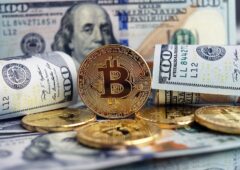Trump Slaps Brazil with 50% Tariff: Political Firestorm and Censorship Clash Escalate
Trade war escalates as Trump administration drops a 50% tariff hammer on Brazil—political tensions boil over.
Behind the tariff curtain: A brewing storm of censorship debates and economic brinkmanship.
Markets brace for fallout—because nothing says 'stable investment' like geopolitical whiplash.
Bolsonaro’s trial and freedom of speech concerns
In a sharply worded letterto his Truth Social platform, Trump criticized Brazilian President Luiz Inácio Lula da Silva for what he described as a politically motivated trial targeting Bolsonaro. Referring to the former leader as a friend and political ally, Trump asserted that the case against Bolsonaro—who faces charges for allegedly attempting to overturn his 2022 election defeat—should not be proceeding.
Trump’s letter also condemned Brazil’s recent moves to regulate online platforms. He cited a ruling by Brazil’s Supreme Court that holds social media companies liable for user content, and pointed to the temporary ban of Elon Musk’s X platform last year as evidence of an “insidious attack” on free speech. The former U.S. president framed the issue as not just domestic censorship, but a violation of the rights of Americans online.
READ MORE:
Trade imbalance claims spark economic retaliation
In addition to political concerns, Trump’s letter accused Brazil of maintaining protectionist trade policies and unfair barriers that have hurt American exporters. Despite U.S. trade data showing a $7 billion surplus with Brazil in 2024, Trump insisted the relationship lacked reciprocity and was “far from a level playing field.”
He warned that the newly imposed 50% tariff could be raised even higher if Brazil chooses to retaliate. As with previous tariff announcements aimed at other countries, the WHITE House framed the decision as a defense of American industry and democratic principles.
The sharp tariff increase on Brazil adds to a growing list of international economic actions by Trump’s administration ahead of the August 1 global trade deadline.
![]()


